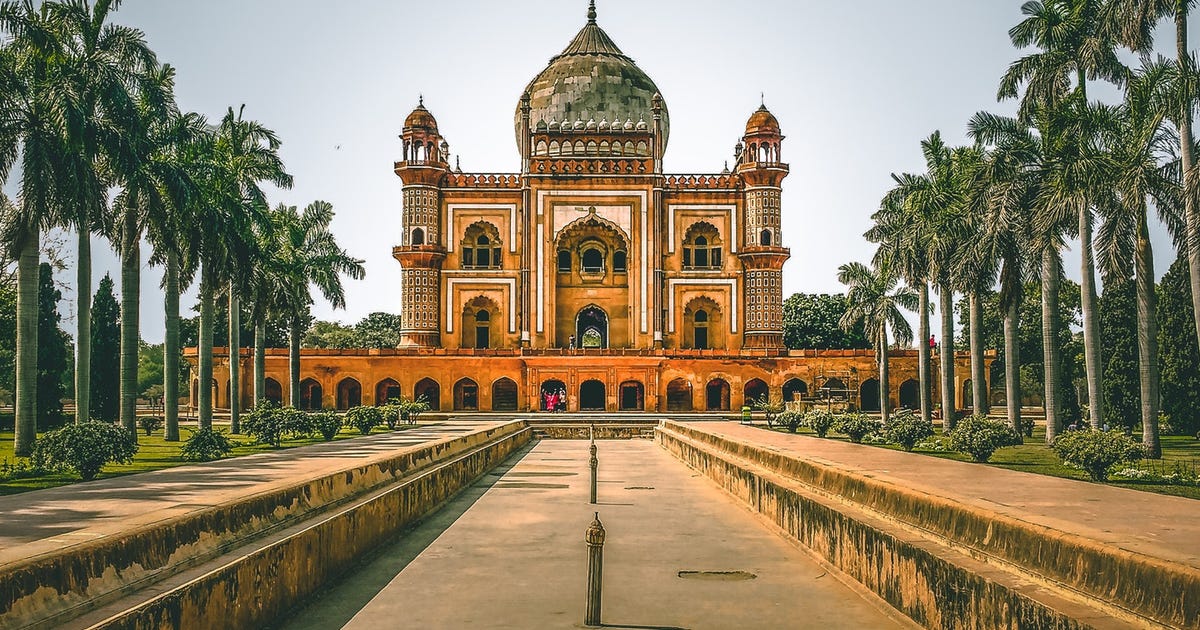India
India is a country with a rich and diverse cultural heritage, as well as a rapidly growing economy. It is located in South Asia and is the seventh-largest country in the world by area and the second-most populous country after China. India is known for its vibrant and colorful festivals, intricate architecture, and delicious cuisine. It is also known for being a land of contrasts, with both modern cities and ancient ruins, bustling marketplaces and serene temples, and both extreme wealth and poverty.
The history of India dates back to the Indus Valley Civilization, which existed from 3300 BCE to 1300 BCE. Over the centuries, India was ruled by several empires, including the Maurya Empire, the Gupta Empire, and the Mughal Empire. In 1947, India gained independence from Britain and became a democratic republic.
India is a federal parliamentary democratic republic, which means that it is governed by elected representatives and has a president who serves as the head of state. The country is divided into 29 states and 7 union territories, each with its own government. The capital of India is New Delhi and its largest city is Mumbai.
India is known for its diverse cultures and religions, with Hinduism being the largest religion, followed by Islam, Christianity, Buddhism, and Sikhism. The country is also home to numerous languages, with Hindi and English being the most widely spoken.
One of the most significant aspects of India's culture is its cuisine, which is known for its use of spices and herbs. Indian cuisine includes a variety of dishes, from vegetarian to meat-based, and from spicy to mild. Some of the most popular dishes include samosas, biryani, tandoori chicken, and masala dosa.
India is also famous for its textiles and handicrafts, which include intricate silk fabrics, intricate wooden carvings, and colorful ceramics. The country is also home to several UNESCO World Heritage sites, including the Taj Mahal, the Ajanta and Ellora Caves, and the Hampi ruins.
The economy of India is one of the fastest-growing in the world, with an average annual growth rate of 7% over the past decade. India is known for its strong service sector, which includes information technology, finance, and tourism. The country is also a leading producer of agricultural products, including rice, wheat, and cotton.
Despite its rapid economic growth, India still faces many challenges, including poverty, inequality, and corruption. Over 25% of the population lives below the poverty line, and there is a large wealth gap between the rich and the poor. India also ranks 116th out of 180 countries in the Transparency International Corruption Perceptions Index, which measures public sector corruption.
In recent years, India has made significant progress in improving the lives of its citizens. The government has implemented several programs aimed at reducing poverty and improving access to education and healthcare. One such program is the Pradhan Mantri Jan Dhan Yojana, which provides financial services to the unbanked population. Another program is the Swachh Bharat Abhiyan, which aims to clean up the country and provide access to toilets for all citizens.
India is also playing an increasingly important role on the global stage. The country is a member of several international organizations, including the United Nations, the World Trade Organization, and the International Monetary Fund. India is also a member of the BRICS group, which includes Brazil, Russia, India, China, and South Africa, and is considered one of the world's leading emerging economies.
In conclusion, India is a country with a rich cultural heritage, a rapidly growing economy, and a diverse population. Despite its many challenges, the country has made significant progress in improving the lives of its citizens in recent years. India is a leading producer of agricultural products and has a strong service sector, including information technology, finance, and tourism. The country is also known for its vibrant cultural traditions, including its delicious cuisine, intricate textiles and handicrafts, and UNESCO World Heritage sites.
India is also making its presence felt on the global stage. The country is a member of several international organizations and is considered one of the world's leading emerging economies. India has a young and rapidly growing population and is poised to play a significant role in shaping the future of the world.
However, the country still faces several challenges, including poverty, inequality, and corruption. Addressing these challenges will be crucial for the country to reach its full potential. The government must continue to implement programs aimed at reducing poverty and improving access to education and healthcare, while also addressing corruption and promoting economic growth.
In the future, India has the potential to become a major economic and political player on the world stage. To reach this goal, the country must continue to develop its infrastructure, promote entrepreneurship, and improve the lives of its citizens. India's rich cultural heritage, diverse population, and rapidly growing economy make it a country to watch in the coming years.


0 Comments:
Post a Comment
Subscribe to Post Comments [Atom]
<< Home